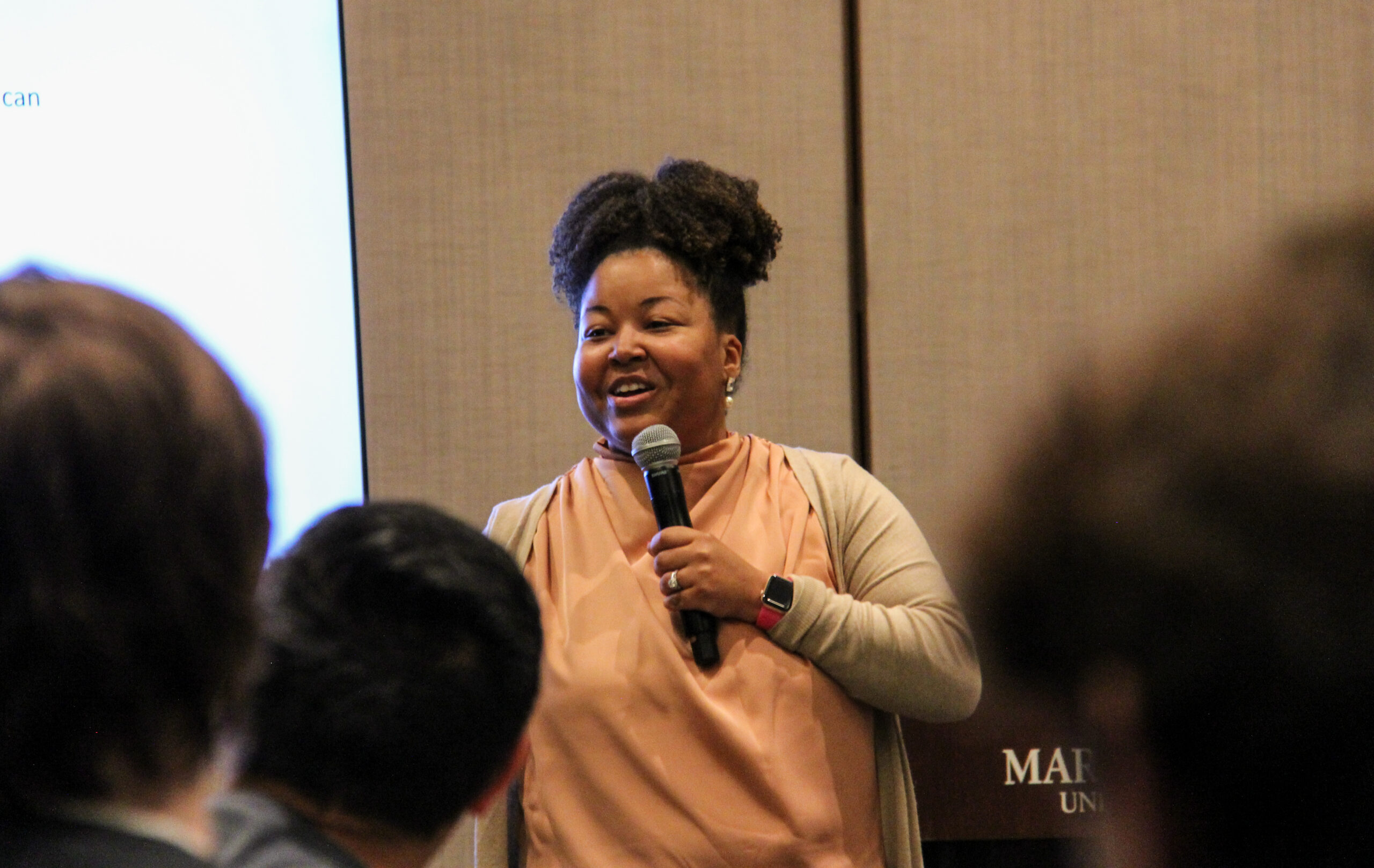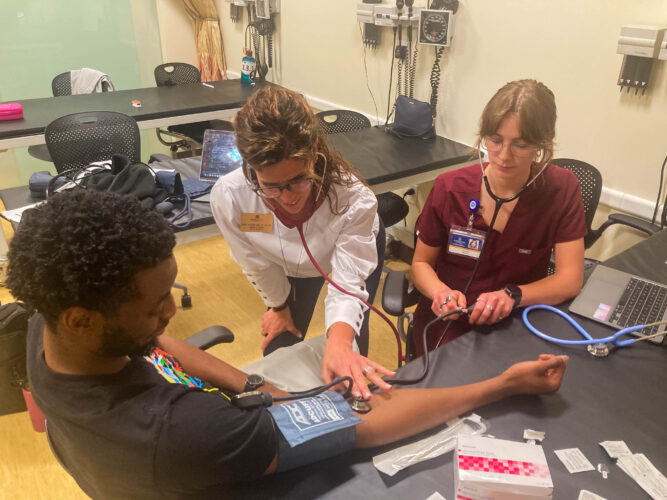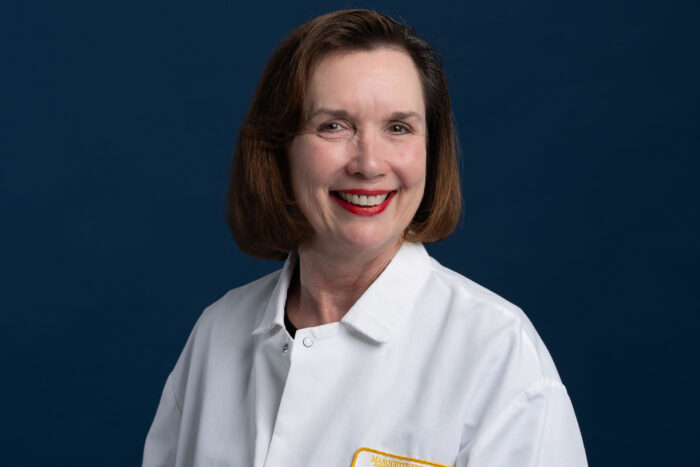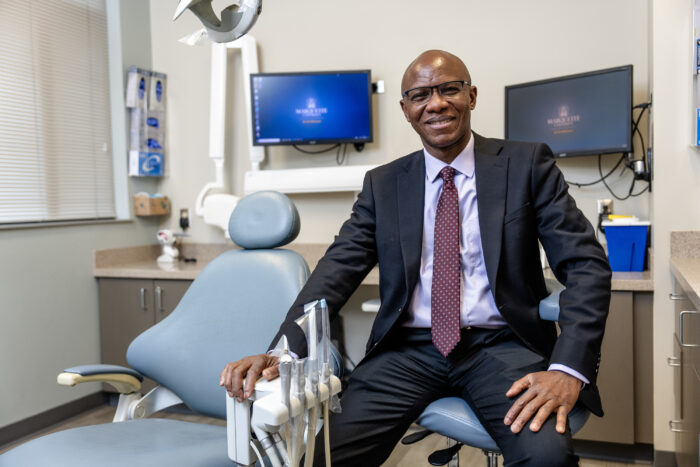When Teon Austin started his new role as Marquette School of Dentistry’s director of diversity and inclusion late last summer, one of his top priorities was to “establish a framework of cultural humility.”
On the whiteboard in his first-floor office within the Office of Student Success and Practice Transitions, Austin has mapped out a handful of ideas – big and small – he hopes to implement for the first time in the dental curriculum.
Austin got to check off one of those big ideas Wednesday, June 12, when the School of Dentistry hosted a daylong education seminar called the “Grand Rounds: Summer Bridge Building Session,” which featured a range of guest speakers, panels and breakout workshops for students under the theme “Purposeful Patient Interactions.”
“It’s great to sit down in a workshop or lecture and learn about all the aspects that go into understanding other people,” Austin says. “But I think it’s even more valuable to couple something like that with sitting across from somebody who’s different from them and being able to interact. I think those are the things that make you more culturally competent and humble.”
About 300 students packed the Weasler Auditorium for a series of morning sessions, including lectures from guest speakers Dr. Clavon Byrd and Dr. Barb Spies about cultural competency and communication when it comes to working with patients. Austin then moderated a panel focusing on diversity in the field, with doctors who shared their perspectives based on their careers in the U.S., Nigeria, Palestine and Mexico. Dr. Thomas Raimann, adjunct assistant professor, Dr. Ruba Khader, Dr. Christopher Okunseri, professor and director of the predoctoral program for dental public health, and Dr. Cesar Gonzalez, chair of the Department of Dental Developmental Sciences, each shared their cultural and professional experiences comparing their native countries to the U.S.
That afternoon in the Alumni Memorial Union, experts weighed in on topics related to diversity, equity and inclusion. Students were asked to choose three topics to attend the interactive breakout sessions.
“We wanted to make sure students got exposure to people who weren’t only faculty and staff – the people that they see every day,” Austin says. “We want to be breaking down silos on campus and connecting them with people who were actual practitioners and experts having these conversations.”
Austin worked with Dr. Mary Cimrmancic, clinical associate professor and director of the Dental Rounds course, and Jane Alexopoulos-Walters, quality assurance coordinator, to build the program. Together, they partnered with the Counseling Center, the Physical Therapy Program and the offices of Inclusion and Belonging, Student Affairs and Student Development to garner guest speakers.
Among the topics covered were “Building Rapport with Patients from Different Cultures” by Marie Humes, counselor and coordinator for Black/African American Student Services in the Counseling Center; “Effective Communication Strategies for Patients with Limited English Proficiency” by Dr. Jennifer Talley, interim associate dean of academic affairs in the School of Dentistry; and “What Dentists Should Know About Sex Discrimination and Harassment” by Estelle Welhouse, victim advocate in the Center for Student Wellness and Health Promotion.
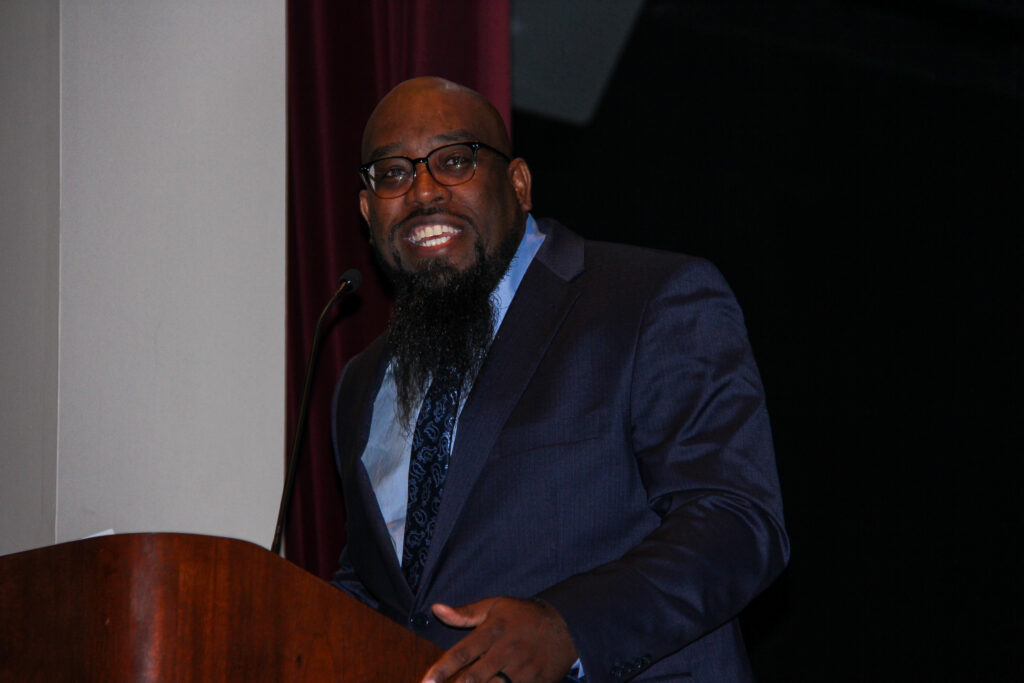
The Grand Rounds session, part of the school’s Dental Rounds curriculum, is intended to take students out of the classroom and provide them with an opportunity for face-to-face discussions. As part of the course, students complete a quiz and write a reflection about their Grand Rounds experience and how they apply what they have learned to their interactions with clinical patients. Cimrmancic says the Grand Rounds are intended to embody Marquette’s mission of cura personalis in relation to the goals of patient-centered care and positive treatment outcomes.
“Good patient care includes listening to the individual patient and tailoring treatment recommendations to them. It’s also good business,” Cimrmancic says. “The way you make a patient feel can help to engage them in their healthcare decisions and treatment, foster return visits in the future and contribute to good outcomes. Empathy and understanding are key always, but especially in a first visit. There are times when the patient arrives with a dental emergency and is experiencing discomfort, has lost sleep or has not eaten, or has a language barrier. Patients appreciate kindness, patience and reassurance.”
Though the next Grand Rounds will likely cover a different clinical topic, Austin is working on incorporating similar events, courses and clubs on campus.
“Imagine if we had students from nursing, physical therapy and other healthcare-oriented programs get together for these important conversations,” Austin says.” I think that would really differentiate Marquette in the market, as the kind of healthcare professionals we put out will be culturally humble and practice with a humanistic lens. It can be a transformational experience for each of those individuals, personally and professionally.”
If the whiteboard in Austin’s office is any indication, the opportunities for dialogue will only continue to grow.
